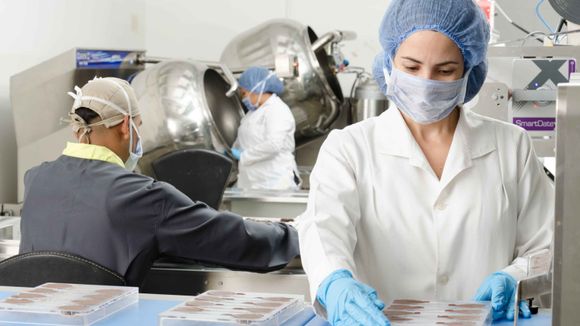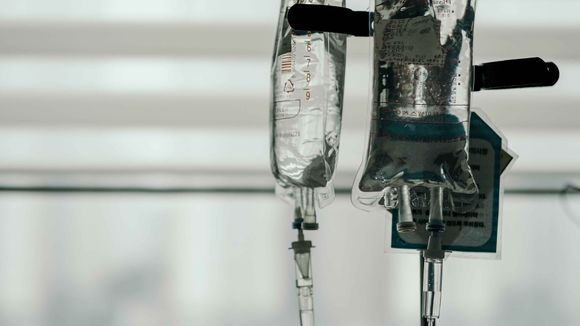Colorectal cancer - what is the disease
Often, both colon and rectal cancers are combined into a common concept of "colorectal cancer". This is a term that represents the third most common form of cancer in the world. But they are not the same thing and are not interchangeable. ( [ref. 1] )
Colon cancer describes the existence of cancer cells in the colon, while rectal cancer describes cancer in the rectum. Rectal cancer is less common than colon cancer and is more difficult to treat. Common symptoms include rectal bleeding, constipation and abdominal pain.
In terms of the degree of remission, it can be high if the disease is detected early. When rectal cancer is localized, the five-year survival rate is 90%. If it has spread a little, the percentage decreases to 73%, and if it is many, the percentage drops to 17%.
Clinical study of a drug for rectal cancer
Each of the patients in this recent study had a very specific form of rectal cancer called "rectal adenocarcinoma with a recovery mismatch." This form of cancer is even more difficult to treat than general rectal cancer.
After receiving an experimental drug called dostarlimab- anti-PD-1 monoclonal antibody, all successfully treated 12 participants underwent complete remission. Doctors say this is the first time such cancer drug has had 100% success in a clinical trial. [ [ref. 2]
The results of the small study, carried out by researchers at memorial Sloan Kettering Cancer Center in New York, were published in the renowned journal New England Journal of Medicine. The results of the study were funded by the pharmaceutical company GlaxoSmithKline.

Other similar studies have been conducted in the past, such as a clinical trial led by Dr. Luis A. Diaz Jr. in 2017, which Merck , the drug maker, has funded. It involves 86 people with metastatic cancer, which originates from different parts of their bodies. But all cancers share a gene mutation that prevents cells from repairing DNA damage. These mutations occur in 4% of all cancer patients. Patients in this study took an inhibitor of Merck's checkpoint, pembrolizumab, for up to two years. Tumors shrink or stabilize in about a third to half of patients, and they live longer. Also, the tumors disappeared in 10% of the study participants.
Participants in the new 2022 clinical trial were patients with rectal cancer and faced exhausting forms of treatment - chemotherapy, radiation and most likely life-changing surgery that could lead to intestinal, urinary and sexual dysfunction. They comply to be part of the trial, because they think that they will go all over again with the process and no one expected their tumors to disappear. Patients receive the drug intravenously every three weeks for six months, with a cost of about $11,000 per dose. The drug works by demasking cancer cells, allowing the immune system to identify and destroy them. It is a form of immunotherapy that promotes the body's own immune system to work as an ally against cancer. The MSK clinical trial is investigating - for the first time - whether immunotherapy alone can beat rectal cancer that has not spread to other tissues in a subset of patients whose tumor contains a specific genetic mutation.

Helping the immune system overcome rectal cancer
Immune cells contain a precaution called a checkpoint so that normal cells do not attack them. ( [ref. 3] Cancer cells can trigger this defense and turn off immune cells, allowing the tumor to hide and grow. However, immunotherapy can turn the tide again.
An immunotherapy agent called a checkpoint inhibitor releases the brake on the immune cell, allowing it to recognize and attack cancer cells. When the brakes are taken off the immune cells, the MMRd cells look particularly strange because they have so many mutations. Thus, the immune cells attack with much greater force. Dr. Diaz's pioneering research in cancer immunotherapy has already shown that checkpoint inhibitors can help people with MMRd colorectal tumors that have spread. ( [ref. 4] Thus, together with the team, they came up with the idea of applying immunotherapy as a first-line treatment before the cancer has metastasized.
The result: 100% remission of rectal cancer
Although a small study with only 18 patients with rectal cancer successfully passed from them 12, each of whom took the same drug and the results are stunning. Amazingly, the cancer disappears in every single patient, it is not detected and on physical examination; endoscopy; positron emission tomography or PET scan, nor in MRI scans (MRI resonance imaging). The results are so impressive that they were published in The New England Journal of Medicine and presented at the largest gathering of clinical oncologists in the country in June 2022.
Side effects in the treatment of rectal cancer
None of the patients had a relapse of the disease or needed additional treatment during a follow-up period that lasted an average of about a year, the study said.
In addition, none of the 12 patients had serious side effects, which is one of the main problems in typical treatments for rectal cancer and other cancers (such as chemotherapy or radiotherapy).








